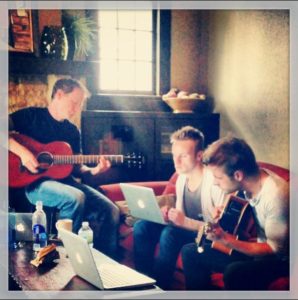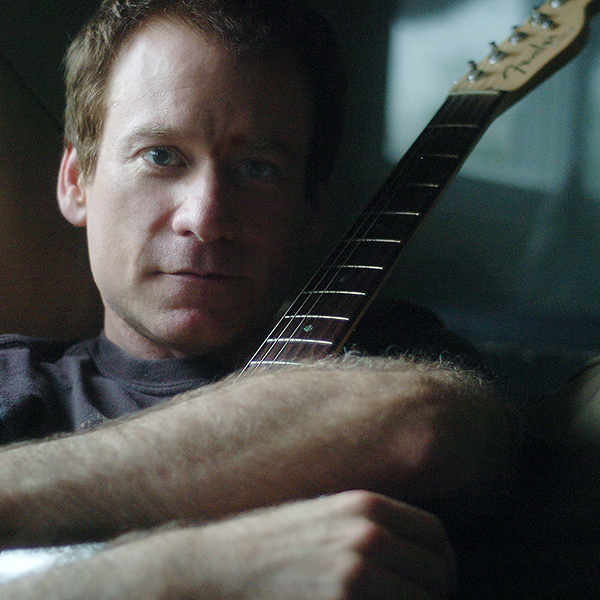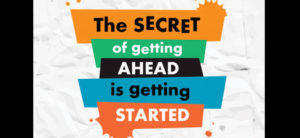by Clay Mills
Apr 2, 2022
We’re going to do something special today. Since the beginning of SongTown, I’ve had members ask me if I would break down a song – from the beginning of the idea and inspiration, how he wrote it, to how it became a major label cut. And I’ve always been hesitant because songs don’t always start the same way. Sometimes you start with a keyboard sound, sometimes you start with a melody, or a title or a lyric line that pops in your head. So I never liked to promote a system of “how to write a song”. But I thought there were some interesting things regarding how this particular song came about, and I wanted to talk about that with you today. This song is “Ordinary Heartbreak”, recorded by Dan Smalley on Big Machine Records.
Chapter 1: Genesis of the Song
If I go back to the genesis of this song, I’ve got to start with about a year ago. I bought a Fender Bassman amp from 1972 – I’ve always wanted one of those vintage amps. I grew up playing in rock bands down in Alabama, and when I was 19, I moved to New York City and got into the programming world of writing hip hop and R&B. I finally made my way to Nashville 15 years later and started writing country songs, but I was never on the traditional side of country.
So when I plugged in this amp and heard that twangy guitar sound it was like my subconscious was saying, you’ve got to play this guitar lick. I would have made sense for me to go to something more funky, but for some reason this country guitar lick came into my head. I don’t know where it came from, I just heard it. So I started trying to put some chords behind it, and it was more 70’s / 80’s country – it had that snap. It just inspired me.
And for about two months, I would just play that riff over and over with those chords, and I didn’t know why. Sometimes I feel like, looking back over my career, that my subconscious knows a lot more than my conscious does sometimes. So I kind of carried that around and every time I plugged into that amp, I would try to perfect the way it sounded and perfect that lick.
Chapter 2: The Co-Write

About eight months ago, a friend of mine asked me if I wanted to co-write with this up and coming artist in Nashville, Dan Smalley. I listened to Dan’s voice, and it was that very traditional country thing – so I immediately went to that guitar riff.
I set up an appointment with Dan, and I knew that he liked Alan Jackson. So I said, why don’t we bring in my friend Mark Irwin, who wrote a big hit with Alan Jackson? It could be fun. So we sit down, and the first thing I like to do after I get to know the artist a little bit is ask them if they have a title or idea that they want to write that day. It gets the artist involved in the process; it gets them invested – and you want the artist to care about the song.
So Dan throws out this title, “Ordinary Heartbreak”. And if you’ve heard my video on the “talk sing” method, when somebody in the room says something, I tend to sing it. So I jumped into that chord progression and the first two lines just came out. Dan lit up; he thought the vibe, the groove, the chords really fit what he was trying to do as an artist.
From that point, we stopped and talked about the different angles we could write it as, and settled on the idea after a little discussion. Dan really liked the fact that I had changed it to “an ordinary heartbreak song”, rather than just “an ordinary heartbreak”. It gave us another level of what we could do with the lyrics.
Once we had that, we went to a verse, and since we had those long lines in the chorus, I wanted to chop that verse up and make short little bursts of three notes. I just love that kind of contrast. And when you have a hooky melody that is that set, it makes it harder to write the lyric because you’ve got to tell a story with just those three little notes over and over. So at that point, it’s a bit of a challenge, but the trick is to make it sound like it just rolls off the tongue.
So we came up with the opening line – “played the fool / broke her heart / walked away”. Then the next line is a little longer for variation – “that’s when it started getting harder to sleep / in this bed / wish I would have thought it out a little better instead”. And that’s the whole verse – four lines, but it tells a story.
So then our job was to finish writing the chorus, and Dan wanted to put something in there about a jukebox. “Yeah it’s just your average ordinary heartbreak song / the kind you’ve heard a hundred times and sang along / with a jukebox”. It kind of rolled right in there and made the whole chorus one long sentence. It’s kind of like you’re dangling a carrot in front of the listener, and you’re making them listen to the next line, and I love doing that.
So I remember when we had the word ‘jukebox’, I wanted to rhyme it with ‘teardrops’, a bit of a traditional country rhyme. And Mark had a great idea there of having the jukebox drowning out the teardrops. In terms of the melody, Dan loved how I stretched out the note on “all night long”. And I always try to think of the singer when I’m writing; I want to give a moment for the singer, and he responded to that.
So the first verse had set up the plot, the character, the context, the mood. But when you get to that second verse, you want to go a little deeper. So we thought it would be great to have him talking about how she had moved on and found another love. That takes the story deeper because you might break up with somebody, but when you see them happy with someone else, it still adds that extra level of hurt. It just makes him seem like even more of a fool that he gave up this girl. So we wrote, “had it all / screwed it up / fell apart / That’s when she found another love and moved on / yeah I guess / you can probably put together the rest of the story”. I remember we were kind of stuck on that last line of the verse for a while, and I felt like we just needed to reemphasize how ordinary this is.
Now in this song, we decided against putting a bridge, and did a solo instead. But since we didn’t have a bridge, I felt like there was a little bit more emotional quality that was still needed. So we made the call to change one line of the last chorus to add a little bit more information. So that last chorus goes, “it’s just an average ordinary heartbreak song / but when it happens, it feels like you’re the only one / singing to the jukebox / drown in teardrops all night long / but it’s just your average ordinary heartbreak song”.
So we felt like it was important to add that part in; when it happens to you, it doesn’t matter if it’s ordinary – it still hurts. And it fit the singer’s character, and that’s important. I remember when we were writing the second verse and we had the line “screwed it up” – back in the day, saying something like that would be kind of racy on country radio. So I checked with him, and he was like, hell yeah, I’ll say that! So if you have an opportunity to write with an artist in the room, check with them if that’s something they would sing on stage.
Chapter 3: The Work Tape + Demo
So when it came time to put down the work tape, we had this song finished in about two and a half hours, just three guys in a room with acoustic guitars. I asked Dan to play the guitar riff, and he comes up with a different riff. Now I could have said at that point, hey, that’s not how it goes. You should play it like this. But I don’t want to do that – this is a collaboration. So I’m always open. I could have been upset and went, that was my riff I wrote months ago, but that would have blown my cut. Be flexible and remember that the song is king. Wherever the song wants to go that day in the room, go there. Don’t be afraid. Don’t hold on to your original idea if the song wants to go somewhere else, because the song will tell you where it wants to go.
So we recorded the work tape on an iPhone, and Dan loved it. He went into the studio and cut a demo with a live band. He later played that demo for the record company that he ended up signing with, Big Machine Records. Throughout my career, I’ve always been open to writing with new artists, because you just never know. I wrote with Lady Antebellum on their first record before they had a record deal. You just never know which artists that you write with are going to get a deal and put your song out into the world.
So Dan played Big Machine the demo, and they loved it. So they went back in the studio with Keith Stegall, the producer, to record the song. You can hear the transformation from the work tape to the demo, and now we’ve got our fingers crossed. If everything goes as planned, it will come out on Big Machine Records! So glad to be able to share these experiences with you.
Cheers.
share
Write Better Songs Faster
Songwriting Success is Clay & Marty's 10-day video series that will help you level-up your songs and finish them faster. Enter your email address to get started!



